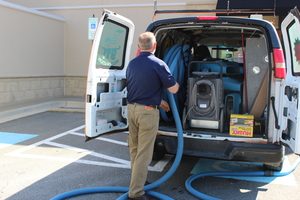Sewage Backup Health Risks: What You Need to Know
As a water damage restoration company, we understand the importance of a safe and healthy environment for our clients. Unfortunately, when sewage backup occurs in a home or business, it can pose significant health risks. Sewage backup is not only unpleasant and inconvenient, but it can also cause severe health problems if not addressed immediately. In this post, we will discuss the health risks associated with sewage backup and what you can do to protect yourself and your property.
Health Risks Associated with Sewage Exposure
Sewage backup can contain harmful bacteria, viruses, and other pathogens that can cause various health problems. Exposure to sewage can lead to the following health risks:
- Gastrointestinal Illness: Exposure to sewage can cause diarrhea, vomiting, and other gastrointestinal symptoms. These symptoms can be severe and last for several days.
- Skin Irritation: Sewage contains irritants that can cause skin irritation and rashes. This can occur from direct contact with sewage or contaminated surfaces.
- Respiratory Problems: Sewage backup can release harmful gases such as methane and hydrogen sulfide, which can cause respiratory problems such as coughing, wheezing, and shortness of breath.
- Infectious Diseases: Sewage can contain bacteria and viruses such as E. coli, Salmonella, and Hepatitis A. These pathogens can cause serious infectious diseases if not treated promptly.
Preventing Health Risks from Sewage
To protect yourself and your property from the health risks associated with sewage backup, it is essential to take preventive measures. Here are some steps you can take:
- Avoid Direct Contact: If you suspect sewage backup in your property, avoid direct contact with sewage or contaminated surfaces. Wear protective clothing, gloves, and boots if you must come into contact with sewage.
- Evacuate the Area: If the sewage backup is severe, evacuate the area immediately and contact a professional to assess the damage and start the cleanup process.
- Disinfect Contaminated Areas: Once the sewage backup has been cleaned up, disinfect all contaminated areas thoroughly. Use an EPA-approved disinfectant to kill bacteria and viruses.
- Properly Dispose of Contaminated Materials: Any contaminated materials such as carpet, drywall, or furniture should be properly disposed of to prevent further contamination.
Conclusion
Sewage backup is a serious issue that should be addressed immediately to prevent health risks. If you suspect sewage backup in your property, contact a professional to assess the damage and start the cleanup process. At 911 Restoration of Miami, we have the expertise and equipment to handle sewage backup safely and effectively. Our goal is to restore your property to its pre-damage condition while ensuring your safety and health. Don’t wait until it’s too late, contact us today for a prompt and reliable sewage backup cleanup service at 305-280-0755.


